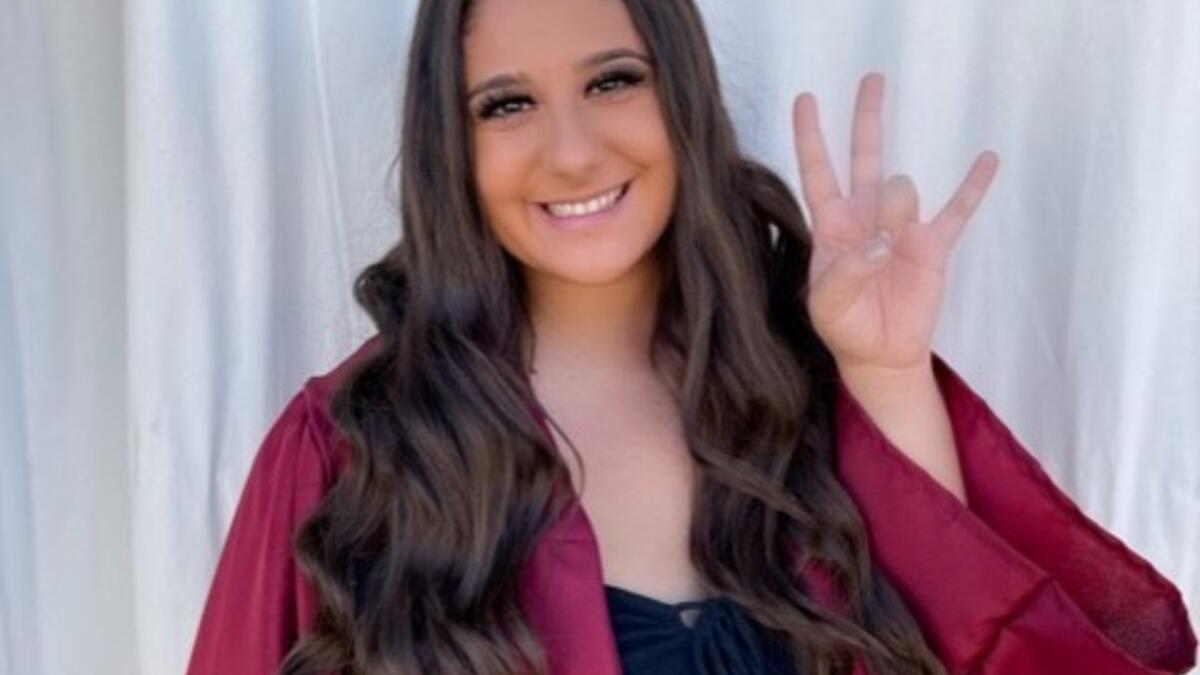A former hotel employee, grad changed major to tourism after browsing ASU website

Dana Rowitz, fall 2021 outstanding graduate, School of Community Resources and Development. Submitted photo
Editor's note: This story is part of a series of profiles of notable fall 2021 graduates.
Dana Rowitz spent her first semester at Arizona State University realizing that the field she initially chose wasn’t for her. But she didn’t have to go far to find her true calling.
The then-elementary and special education major was browsing the university website one day — and there it was.
“True story,” Rowitz said. “I came across the tourism program. I love to travel, and my first job was as a pool attendant at the Wigwam Resort (in Litchfield Park, Arizona), so I decided to go for it.”
Rowitz, the fall 2021 Outstanding Graduate from the School of Community Resources and Development, earned a Bachelor of Science degree in tourism development and management with a focus in resort and hotel leadership.
The Surprise, Arizona, resident also earned certificates in special events management and in convention sales and meeting planning.
Rowitz said her decision to attend ASU didn’t involve vast amounts of research or tough decision-making. It simply was the only school she ever wanted to attend and the only one to which she applied.
“Choosing to go to ASU, at the time, didn’t seem like a huge deal. But what I didn’t know is that coming to ASU would change my life and open over a thousand doors for me,” Rowitz said. “I stayed at ASU for the duration of my undergraduate career because of the opportunities I had, the people I met and the positive atmosphere ASU has created.
Rowitz said she experienced “an incredible amount of personal growth while at ASU."
"I held various leadership positions in my sorority, volunteered with Best Buddies Arizona, was a member of the Tourism Student Association and had a couple of part-time jobs,” she said.
As she looked back to that first semester, Rowitz said each experience since contributed to the growth of her perspectives, particularly about meeting others.
“I think the biggest thing I took from being at ASU is that everyone’s story is different and unique,” she said. “You can never judge a book by its cover.”
Read on to learn more about Rowitz’s ASU experience.
Question: Which professor(s) taught you the most important lesson while at ASU?
Answer: The School of Community Resources and Development has some of the best faculty, but I want to highlight Claire McWilliams and Erin Schneiderman. Claire McWilliams was the first professor I met in my degree program and the reason I fell in love with the industry all over again. I will never forget my first day in TDM 205.
I cannot say thank you enough to these women for always believing in me and inspiring me to be the best version of myself every day. They have not only created engaging learning in the classroom, but have brought learning and professional development experiences outside the traditional classroom setting.
Q: What’s the best piece of advice you’d give to those still in school?
A: Get involved! I cannot stress enough the importance of putting yourself out there and making the best of your college experience. One of the best parts about college is being able to meet so many different types of people, and getting to experience things you might not have been able to before. My college experience would not have been the same without the organizations, volunteer opportunities, jobs or people I met these past three-and-a-half years.
Q: What was your favorite spot to study, meet friends or to just think about life?
A: The different study lounges and common areas of my dorm/apartments over the years. I met some of my closest friends through student living and have made some of the best memories in these settings.
Q: What are your plans after graduation?
A: After graduation, I will be moving to New York City to attend New York University for graduate school to pursue a master’s degree in global hospitality management.
The School of Community Resources and Development is part of the Watts College of Public Service and Community Solutions.
More Arts, humanities and education

ASU professor's project helps students learn complex topics
One of Arizona State University’s top professors is using her signature research project to improve how college students learn…

Award-winning playwright shares her scriptwriting process with ASU students
Actions speak louder than words. That’s why award-winning playwright Y York is workshopping her latest play, "Becoming…

Exceeding great expectations in downtown Mesa
Anyone visiting downtown Mesa over the past couple of years has a lot to rave about: The bevy of restaurants, unique local shops…

